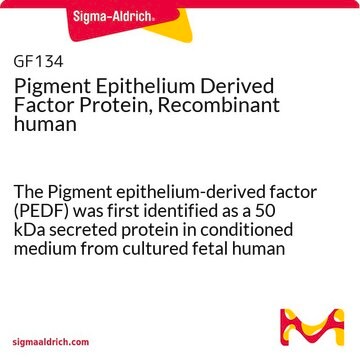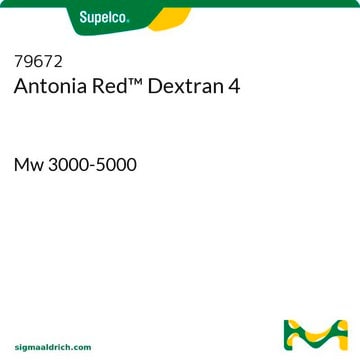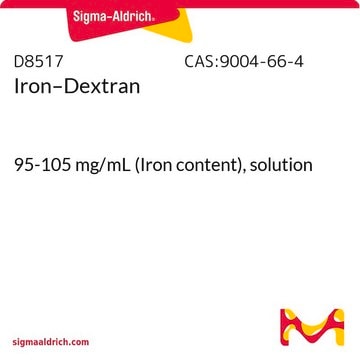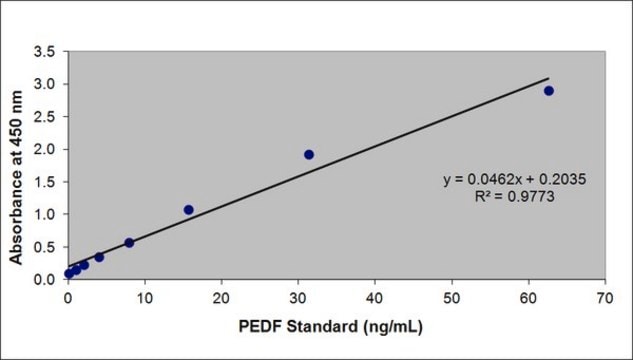SRP4988
PEDF human
recombinant, expressed in E. coli, ≥95% (SDS-PAGE), ≥95% (HPLC)
Sinónimos:
EPC-1, EPC1, PIG35, Pigment epithelium-derived factor, Serpin-F1, SerpinF1
About This Item
Productos recomendados
biological source
human
recombinant
expressed in E. coli
assay
≥95% (HPLC)
≥95% (SDS-PAGE)
form
lyophilized
mol wt
~44.5 kDa
packaging
pkg of 20 μg
technique(s)
cell culture | hybridoma: suitable
western blot: suitable
impurities
endotoxin, tested
suitability
suitable for Western blot
NCBI accession no.
shipped in
wet ice
storage temp.
−20°C
Gene Information
human ... PEDF(5176)
General description
Pigment epithelium-derived factor (PEDF) is a multifunctional glycoprotein that belongs to the serine proteinase inhibitor (serpin) family. This protein is widely expressed across various tissues and organs in mammals and is characterized by a reactive center loop (RCL), a common structural feature of serpins. PEDF plays a crucial role in maintaining numerous physiological functions. SERPINF1 mRNA, which encodes PEDF, exhibits high expression levels in both human fetal and adult livers, as well as in adult human bone marrow.
Application
Biochem/physiol Actions
Physical form
Reconstitution
Storage Class
11 - Combustible Solids
wgk_germany
WGK 3
flash_point_f
Not applicable
flash_point_c
Not applicable
Certificados de análisis (COA)
Busque Certificados de análisis (COA) introduciendo el número de lote del producto. Los números de lote se encuentran en la etiqueta del producto después de las palabras «Lot» o «Batch»
¿Ya tiene este producto?
Encuentre la documentación para los productos que ha comprado recientemente en la Biblioteca de documentos.
Nuestro equipo de científicos tiene experiencia en todas las áreas de investigación: Ciencias de la vida, Ciencia de los materiales, Síntesis química, Cromatografía, Analítica y muchas otras.
Póngase en contacto con el Servicio técnico








